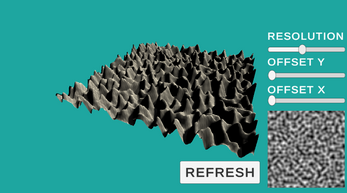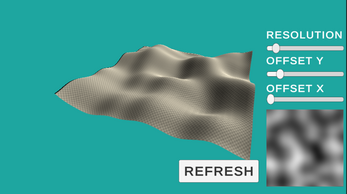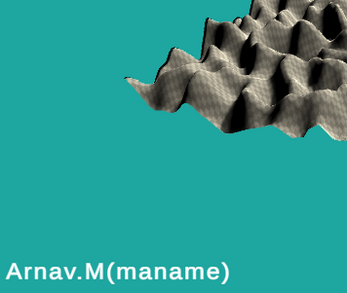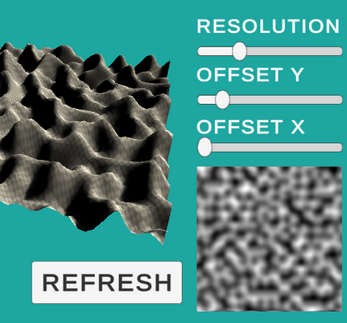Procedural Terrain Generation (Perlin Noise)
My experiment with procedural terrain generation all noise functions and scripts are made by me but i did refer to a brackeys video on the same topic to get the terrain integration of the project up and functioning
- Perlin noise is pseudo- random, meaning its not completely random, hence, if we the same values into the perlin noise function outputs will be equivalent.
- The noise texture or heightmap was made using by taking a 128 by 128 texture and iterating all teh points under a perlin noise function
- The perlin noise function can be offsetted along the x and y axis, hence, by randomizing the offsets, or the seed, we get different terrains on different iterations
- The resolution comes into account when calculation the perlin noise. As the perlin noise function takes in x and y values, by mutiplying the calculated constant value (pixel number and offset/ width or height) with a resolution value we can effectively zoom in or out of the perlin noise map. Thus, producing more frequent and pronounced hills and/or valleys.
- The framerate has been clmaped to 10 frames per second, for the terrain, as calculations required to generate the terrain are heavy and time consuming. I also want this program to run on low-end devices well and without heating problems
What i learnt :
- How to manipulate and code textures.
- How to code, use and map meshes( this was my first approach )
- Terrain field in unity
Scope of Improvement:
- Can use meshes and vertices instead of terrains
- Code can be made faster with some adjustments
This was one of the harder projects I've made so it was certainly interesting and i learnt a lot. I hope you found this fascinating too.
ArnavM (maname)
| Status | Released |
| Platforms | HTML5 |
| Author | maname |
| Genre | Simulation |
| Made with | Unity |
| Tags | Experimental, Procedural Generation |







Leave a comment
Log in with itch.io to leave a comment.